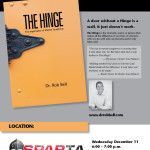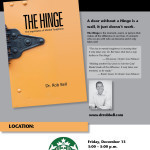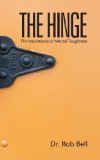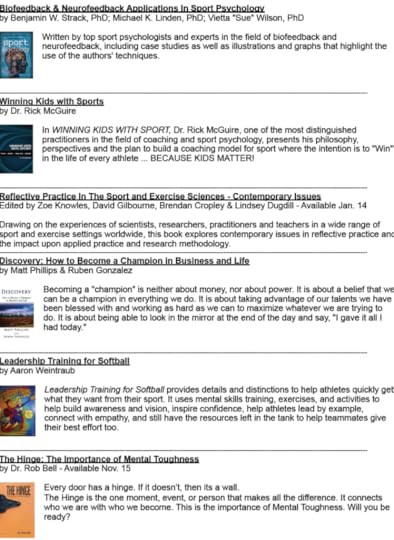Rob Bell's Blog, page 34
December 7, 2013
How an Olympic Gold medalist and I shared a Hinge
Most of my life, I have been a sport obsessed honk, not only playing, but also following every sport, in every possible venue. For instance, as a kid, I used to watch EVERY SINGLE match of Wimbledon on HBO during the summer. I just assumed that the best win, end of story. As a kid, I had no idea that there was a mental component to winning or even playing consistent.
In 1992, my beliefs changed. Reebok had launched a campaign titled Dan or Dave, who is the best athlete in the world? Who will take home the Gold medal in the Barcelona Olympics? The competition was between Dave Johnson and Dan O’Brien, two USA decathletes.
However, even before the Olympics began, during Olympic trials, Dan O’Brien was leading after the 1st day of competition and on record-setting pace. However, during the 8th event, the pole vault, Dan O’Brien stunningly failed in three attempts, scored zero points, and drifted to last place. He said, “it was like a dream, I wanted to turn to somebody and say, “Do something.”
Our Mess Becomes our Message…
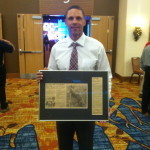 However, he also said something I’ll never forget. During his weakest moment, he said “I pity anyone who goes against me in the next four years.” I was so intrigued that anything like this had happened that I began to follow his career, even cutting out the newspaper clipping from that day!!! It was his Hinge moment, because our mess becomes our message… [ I took his picture holding this framed 1992 newspaper article that hangs in my office.]
However, he also said something I’ll never forget. During his weakest moment, he said “I pity anyone who goes against me in the next four years.” I was so intrigued that anything like this had happened that I began to follow his career, even cutting out the newspaper clipping from that day!!! It was his Hinge moment, because our mess becomes our message… [ I took his picture holding this framed 1992 newspaper article that hangs in my office.]
It became my Hinge as well, because Dan O’Brien began to see a sport psychologist to help with his mental preparation. He admitted that there were too many variables in his preparation and he needed to become more mentally tough. Well, in 1996, he won the Gold medal in the Decathlon in Atlanta and set the all-time record.
I knew from that moment I wanted to help athletes feel the greatest joy of performing well when it mattered the most. I would become a Sport Psychology coach. For more information on Dan O’Brien and his journey, check out his new book.

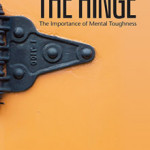 Dr. Rob Bell is a Sport Psychology coach. DRB & Associates based in Indianapolis works with athletes, coaches, and teams building their Mental Toughness. His 2nd book titled The Hinge: The Importance of Mental Toughness was JUST released. Follow on twitter @drrobbell or contact here drrobbell@drrobbell.com
Dr. Rob Bell is a Sport Psychology coach. DRB & Associates based in Indianapolis works with athletes, coaches, and teams building their Mental Toughness. His 2nd book titled The Hinge: The Importance of Mental Toughness was JUST released. Follow on twitter @drrobbell or contact here drrobbell@drrobbell.com
December 6, 2013
The Hinge: 2 Book Signings
November 29, 2013
10 Everyday Mental Toughness tests.
We may think of Mental Toughness as a huge culminating, you have it or you don’t, event or thing. However, Mental Toughness is really about doing what others aren’t willing to do, pushing ourselves in all areas of our lives, and simply getting better. Thus, since you’re reading this post, some of these tests will be easy, whereas others may be difficult. The key is to accomplish all ten in one day. Each of these tests, challenges us to work on ourselves.
1. Look everyone in the eye.
The eyes tell it all. The reason we won’t is because we aren’t confident in ourselves. Maybe it is because we are troubled or uninterested in the other person. Don’t just gaze and look away either but right up to the point of it being uncomfortable.
2. Ask a question.
Ask for clarification or to elaborate in every conversation you’re in. Not only will it show your paying attention, but also you’ll learn more. Few people ask questions for fear of looking stupid, so its even better to ask a question in the presence of several people, such as a meeting.
3. Write out your goal for the day.
This is the easiest test, but don’t make it a to-do list. Most of us just think about the goal instead of writing it down. If you write down what you want to accomplish, you’ll achieve it.
4. Get your workout on.
Whether you’re a corporate athlete or someone on scholarship, every one is an athlete. All athletes get physical.
5. Wake up 30 minutes early.
The first hour of the day sets the rudder for the rest. Can you fight the innate urge to hit the snooze and just get up? What will you do with the extra 30 minutes?
6. Work through lunch.
In the movie, Wall Street, Gordon Gekko said it best “ Lunch is for wimps.” Pack your lunch; take a break and be present while you eat and recharge, then grind ahead. 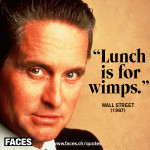
7. Turn off your phone.
This is the tough one for everybody because how long do we go without our phone anyway, 5 minutes? Plan when you get home to shut your phone off during a certain amount of time. Be present!
8. Take 30 seconds of a cold shower.
Pay attention to where your thoughts go. Its only 30 seconds, can you do it?
9. Listen to someone.
Too often, when someone speaks, we merely start talking about ourselves. Instead, just listen and put yourself in their situation. Ask a question and look them in the eye.
10. Forgive someone.
You can check this one off by forgiving someone who cut you off in traffic, or you can seriously work on this step and choose someone who really hurt you. Remember, resentment is like drinking poison and expecting the other person to die. Sometimes the most difficult person to forgive is ourselves.

 Dr. Rob Bell is a Sport Psychology coach. DRB & Associates based in Indianapolis works with athletes, coaches, and teams building their Mental Toughness. His 2nd book titled The Hinge: The Importance of Mental Toughness was JUST released. Follow on twitter @drrobbell or contact here drrobbell@drrobbell.com
Dr. Rob Bell is a Sport Psychology coach. DRB & Associates based in Indianapolis works with athletes, coaches, and teams building their Mental Toughness. His 2nd book titled The Hinge: The Importance of Mental Toughness was JUST released. Follow on twitter @drrobbell or contact here drrobbell@drrobbell.com
November 16, 2013
10 reasons to exercise with music.
1. Helps me tune everything else out.
2. Pumps me up. (Helps me push through “the suck”.)
3. I’m distracted throughout the day anyways, so why change?
4. I already have a noisy head.
5. There might be an emergency (phone users).
6. I don’t want to talk to anyone.
7. I don’t want to listen to anyone.
8. I don’t want anyone talking TO me.
9. I like to talk on my phone while working out/walking.
10. I just can’t exercise without it. (i.e., because I can.)
Now, if you are training for a race. Check out this brief article on why you SHOULDN’T take your headphones to the gym .

 Dr. Rob Bell is a Sport Psychology coach. DRB & Associates based in Indianapolis works with athletes, coaches, and teams building their Mental Toughness. His 2nd book titled The Hinge: The Importance of Mental Toughness was JUST released. Twitter: @drrobbell
Dr. Rob Bell is a Sport Psychology coach. DRB & Associates based in Indianapolis works with athletes, coaches, and teams building their Mental Toughness. His 2nd book titled The Hinge: The Importance of Mental Toughness was JUST released. Twitter: @drrobbell
November 14, 2013
What it took to write The Hinge, now that it is released…
My 1st book Mental Toughness Training for Golf: Start Strong Finish Strong took 2 1/2 years to complete, because I had the security of a being a professor.
took 2 1/2 years to complete, because I had the security of a being a professor.
On the other hand, The Hinge was written when I had the awesome idea to “pursue my goals and dreams.” I began writing on August 1st, 2012 and it has been a difficult 15 months. I am an all-in guy, so I couldn’t write some here and there. I wrote every day….2 hours every day and some days I had nothing more than two sentences because the research took over. It sapped much of my strength because after writing for 2 hours every day, I would still think and obsesses about it…Honestly, financially, not a good decision either. (If you decide to write a book, have a steady income coming in…)
However, I have been blessed to share the unique concept of Mental Toughness, because it only takes one! One purpose of my life was to write this book. That is why I set the goal for The Hinge: The Importance of Mental Toughness to become the #1 Sport psychology book! I was fortunate enough to capture 38 stories of Hinge moments and have two Olympic Gold Medalists endorse the book…I was also able to have a fantastic book produced by Teri Capron of Fresh Design. I really believe that it can impact thousands of coaches, parents, teams, and athletes, but not without your help. I thank you all who can support the book, spread the word, and share your Hinge Moments.
to become the #1 Sport psychology book! I was fortunate enough to capture 38 stories of Hinge moments and have two Olympic Gold Medalists endorse the book…I was also able to have a fantastic book produced by Teri Capron of Fresh Design. I really believe that it can impact thousands of coaches, parents, teams, and athletes, but not without your help. I thank you all who can support the book, spread the word, and share your Hinge Moments.
check out the new FB page and please post your reviews on Amazon and Twitter. #TheHinge
November 7, 2013
Personality doesn’t matter, or does it?
We think personality has a lot to do with success, but actually it has little impact with success on the field of play. The reason why is that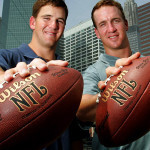 the most important variable for success is execution. Since the brain is a muscle and we play like we train, we can teach and learn how to play well under pressure. It’s not an innate gene. For instance, two-time Super Bowl champion quarterback Eli Manning has often been criticized by journalists and skeptics that stated he was “not a leader.”
the most important variable for success is execution. Since the brain is a muscle and we play like we train, we can teach and learn how to play well under pressure. It’s not an innate gene. For instance, two-time Super Bowl champion quarterback Eli Manning has often been criticized by journalists and skeptics that stated he was “not a leader.”
Now, personality does play a role within teamwork, coach-athlete relationships, and especially communication. So, if you’re interested, herein lies one tool about personalities that can help improve success. The MBTI (Myers-Briggs) is a popular test for measuring personality and since we all have taken it, (we just don’t remember what we are) I have found one aspect of real usage.
One part of the MBTI relates to how we organize our outer world, or how we get control.
Are you a J or P?
J’s like organization and structure. Everything is centered on planning. While society dictates that we must be “on-time” and at “work,” our “world” is sometimes (or often) set for us. Thus, think about your day off, do you like to have it planned? However, J’s like to “moan.” If you ask a J a question, to adjust or modify technique, or something that is unplanned, you’ll hear it. J’s will begin to complain and moan about the things he/she is doing, again because a J has everything structured (planners).
How to interact with a J is simple: J’s simply need time to process information by THEMSELVES and need moan space. So, hit them and run. Hit them with the information and run before the moaning begins.
P’s enjoy freedom of space, absence of routines, and no structure. P’s prefer to have laid-back or no plans. Again think about your day off, do you like to have it “come as it may?” P’s love “new” plans or information. However, P’s will also ponder forever about making any choice because it is the last thing that they want to do (no structure).
How to interact with P’s is also simple: P’s need a push for closure. So, for P’s, offer them 2 choices and you’ll witness a big change in behavior.
The most important factor is that you know how you organize YOUR OUTER WORLD. Is it difficult for you to make a decision, or do you become upset when plans change? It really has nothing to do with likeableness, sense of humor, leadership, work-ethic, or talent. However, it has such real-world applicability that it is the one personality trait that can enhance all our relationships.
.

 Dr. Rob Bell is a Sport Psychology coach based in Indianapolis. DRB & Associates works with athletes, coaches, and teams building their Mental Toughness. His 2nd book titled The Hinge: The Importance of Mental Toughness will be released NOV 15th. Twitter: @drrobbell
Dr. Rob Bell is a Sport Psychology coach based in Indianapolis. DRB & Associates works with athletes, coaches, and teams building their Mental Toughness. His 2nd book titled The Hinge: The Importance of Mental Toughness will be released NOV 15th. Twitter: @drrobbell
November 4, 2013
8 New Sport Psychology books
Are you a coach, athlete, or parent in search of playing your best when it matters the most?
Here are 8 recent Sport Psychology books—-ranging from softball & baseball, leadership, biofeedback, coaching, mental toughness and Sport Psychology practices…
————————————————————————————————————
SEEDS OF SUCCESS by Coach John Brubaker
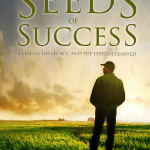 Burton sets out on a quest for knowledge to become a better coach, teacher, and person. Through the guidance of an unlikely mentor, Jack meets three extraordinary teachers and learns how creating a philosophy and having a system give you the power to access greater results in any endeavor.
Burton sets out on a quest for knowledge to become a better coach, teacher, and person. Through the guidance of an unlikely mentor, Jack meets three extraordinary teachers and learns how creating a philosophy and having a system give you the power to access greater results in any endeavor.
———————————————————————————————————–
1 PITCH WARRIOR- GUIDE TO MENTAL TOUGHNESS by Coach Justin Dehmer
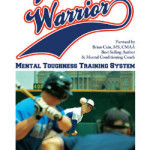 1 Pitch Warrior – Guide to Mental Toughness
is the key to unlocking your full potential as a player or a coach. Not only do the things provided in this book allow you to find your true potential on the field, but I am confident that they will enrich your life off the field as well.
1 Pitch Warrior – Guide to Mental Toughness
is the key to unlocking your full potential as a player or a coach. Not only do the things provided in this book allow you to find your true potential on the field, but I am confident that they will enrich your life off the field as well.
———————————————————————————————————-
October 31, 2013
3 keys of confidence
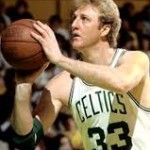 Show me a successful athlete, or person and I’ll show you someone who is confident. It is without a doubt, the most important mental skill. You gotta believe in yourself! Here are three keys about confidence.
Show me a successful athlete, or person and I’ll show you someone who is confident. It is without a doubt, the most important mental skill. You gotta believe in yourself! Here are three keys about confidence.
Confidence is a feeling:
When we are confident, we feel at ease, relaxed, and focused. It is something that we just know. However, confidence is NOT thoughts, but we usually recognize when we are not confident. When we are not confident, we just have more thoughts, doubt, and are not as comfortable. We can act our way into right thinking easier than trying to think our way into right acting.
Confidence is knowing that you’re ready:
Confidence is knowing, not hoping that you are ready. A question to assess our level of confidence is: how would you play if you couldn’t fail? This mind-set is important, because I have yet to meet a successful athlete that plays awesome when they play timid or scared. Confidence = aggressive.
Confidence is patience:
Confident athletes never seem to panic or press when results aren’t going their way. We are all going to have bouts of struggle and we need to remain patient. We must trust our preparation, our coaches, our game plan, our emotional management, our routine, and process of execution. If we have confidence in the aspects we can control, then we will eventually have good outcomes.
“They know, that I know, that they know that I know, I will win”
Watch this clip on Larry Bird & confidence!

 Dr. Rob Bell is a Sport Psychology coach based in Indianapolis. DRB & Associates works with athletes, coaches, and teams building their Mental Toughness. His 2nd book titled The Hinge: The Importance of Mental Toughness will be released NOV 15th. Twitter: @drrobbell
Dr. Rob Bell is a Sport Psychology coach based in Indianapolis. DRB & Associates works with athletes, coaches, and teams building their Mental Toughness. His 2nd book titled The Hinge: The Importance of Mental Toughness will be released NOV 15th. Twitter: @drrobbell
October 24, 2013
Win a Free Copy of The Hinge
Want to know John Wooden’s Hinge Moment, how a Reader’s Digest magazine change my life, & how a plane crash changed the entire music landscape forever in America?
That’s JUST Chapter 1…. The Hinge: The Importance of Mental Toughness is here for you.
Release date in Nov 15th…Want to win a free book? click below….
Goodreads Book Giveaway

The Hinge
by Rob Bell
Giveaway ends November 08, 2013.
See the giveaway details
at Goodreads.
October 17, 2013
The Human Taproot
The dandelion is an interesting plant. It is a very hardy plant. It sprouts very quickly in most types of soil, growing in many climates, with little or lots of rainfall. It also does not seem to need the approval of its owner to grow successfully. Young children generally revere it, but at the same time, most homeowners hate it, because they believe it is just an annoying weed.
Mental toughness is akin to the hardiness factor in plants, which is a plant’s ability to survive in adverse growing conditions. The measurement of plant’s hardiness includes its ability to withstand drought, wind, cold, and heat. The process of gardeners developing strains of hardy plants and shrubs involves the process of “hardening” them to the elements. Ironically, the hardiest types of plants (i.e., weeds and dandelions) are usually the most undesirable to the typical homeowners.
The common trait among all hardy plants, however, is the taproot. The taproot looks similar to a carrot or turnip and grows vertically down as opposed to branching off horizontally. It distributes water where needed and it makes the plant very difficult to displace, because it will continue to resprout. Thus, developing mental toughness begins with developing a human taproot.
A human taproot is a metaphor of mental toughness. The analogy of a taproot is effective because akin to mental toughness, it is unseen. Honestly, when we look at a tree or plant, we only focus on the branches, leaves, and perhaps the fruit. Unless you are a botanist, you will pay little attention to what you can’t see, namely the taproot.
Coaches and commentators often label the human taproot as “the intangibles.” These unseen qualities are often immeasurable, yet the intangibles and the strength of the human taproot determine the success of each athlete. Just as the strength of the taproot is what ultimately determines the longevity of the plant, the real key to success lies in the unseen, the intangibles, and one’s mental toughness. (check out this awesome blog post for more info on motivation). If the roots are not strong, then the plant and player will eventually submit to the conditions.
(excerpt from the book: Mental Toughness Training for Golf)

 Dr. Rob Bell is a Sport Psychology coach based in Indianapolis. DRB & Associates works with athletes, coaches, and teams building their Mental Toughness. His 2nd book titled The Hinge: The Importance of Mental Toughness will be released NOV 15th. Twitter: @drrobbell
Dr. Rob Bell is a Sport Psychology coach based in Indianapolis. DRB & Associates works with athletes, coaches, and teams building their Mental Toughness. His 2nd book titled The Hinge: The Importance of Mental Toughness will be released NOV 15th. Twitter: @drrobbell

